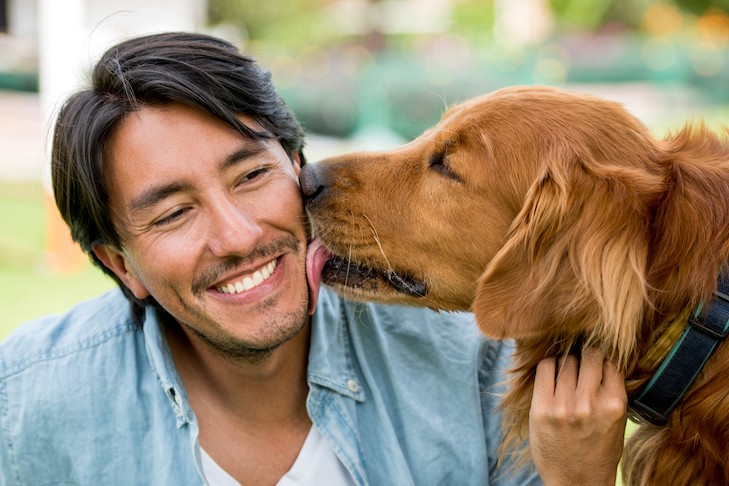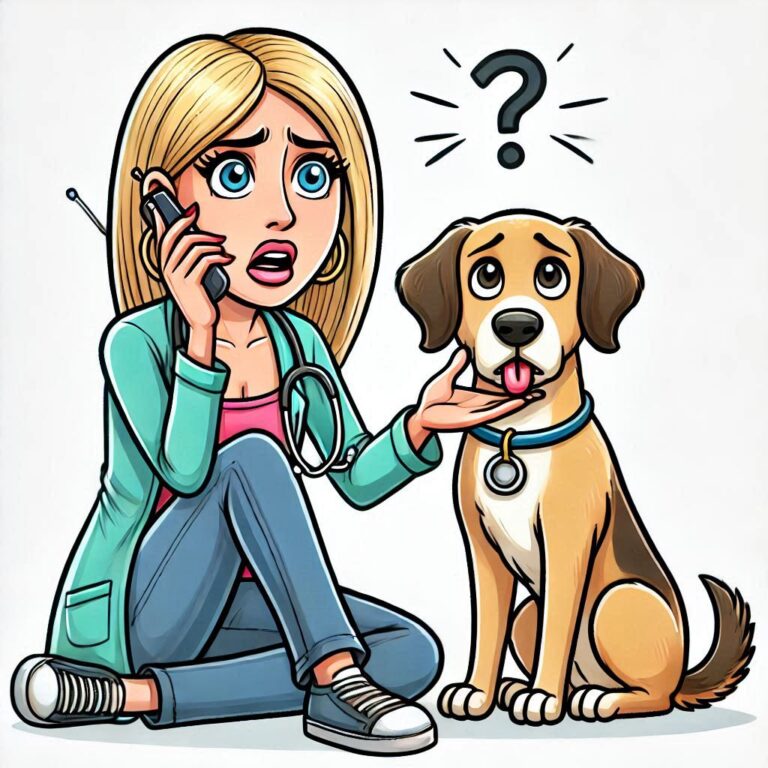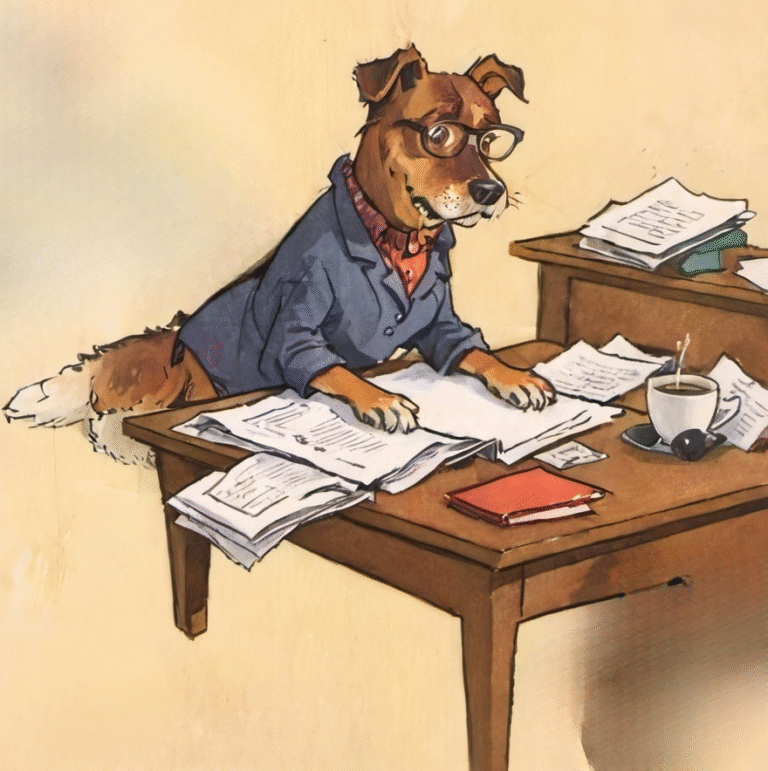Every dog owner wants what’s best for their furry friend – a happy, healthy and long life filled with wagging tails and joyful play. However, navigating the intricacies of dog health can be a daunting task. With so much conflicting information out there, it’s easy to feel overwhelmed and unsure of where to start.
But fear not! In this comprehensive article, we will unravel the secrets of essential dog health tips that every dog owner should know. Whether you’re a seasoned pet parent or a newcomer to the world of dogs, this guide will provide you with invaluable insights and practical advice to ensure your canine companion leads a vibrant and fulfilling life.
The Importance of Dog Health
As a responsible dog owner, the importance of maintaining your furry friend’s health cannot be overstated. A healthy dog not only brings joy and companionship but also contributes to a harmonious household. A well-cared-for dog will have increased energy levels, a robust immune system, and an overall improved quality of life.
A healthy dog is less likely to suffer from debilitating ailments and costly medical bills that can strain both your emotions and finances. By investing time and effort into your dog’s health, you are providing them with the best chance at a long, happy life filled with tail wags and playtime.
Furthermore, when you prioritize your dog’s health, you are setting a positive example for other pet owners in your community. Your commitment to their well-being serves as an inspiration for others to follow suit, leading to healthier pets across the board and strengthening the bond between humans and their furry companions.
Remember, good health is not just about preventing illness; it is also about promoting vitality. By focusing on preventive measures such as regular exercise, nutritious meals, grooming routines, and regular veterinary check-ups, you can ensure that your four-legged family member enjoys optimal physical and mental well-being.
The Burning Issue: Dog Arthritis Care
Arthritis, a common ailment in dogs, can be an incredibly painful condition that affects their joints and mobility. As a responsible dog owner, it is essential to understand the signs, causes, and treatment options available to ensure your furry friend’s well-being.
Recognizing the early symptoms of arthritis is crucial for effective management. Keep an eye out for stiffness, difficulty in rising or sitting down, and reluctance to engage in physical activities. If your dog shows any signs of discomfort or limping after exercise or during cold weather, it may indicate the onset of arthritis.
The primary cause of arthritis in dogs is joint inflammation due to age-related wear and tear. However, certain factors such as obesity, genetics, previous injuries or surgeries can accelerate its development. It is crucial to maintain your dog at a healthy weight through a balanced diet and regular exercise to reduce the strain on their joints.
Fortunately, numerous treatment options exist to alleviate your dog’s arthritis pain and improve their quality of life. Nonsteroidal anti-inflammatory drugs (NSAIDs) prescribed by veterinarians can reduce inflammation and relieve pain. Physical therapy exercises like swimming or gentle walks can help strengthen muscles while providing low-impact activity for the joints. Additionally, incorporating joint supplements with glucosamine and chondroitin into your dog’s diet can aid in reducing inflammation and promoting cartilage health.
Unveiling the Mystery: Understanding Dog Allergies
Allergies are not limited to humans; our furry friends can also suffer from them. Understanding dog allergies is crucial for every dog owner to ensure their pet’s well-being and happiness. Just like humans, dogs can be allergic to a variety of substances, including food, pollen, dust mites, fleas, and certain fabrics. Identifying the source of your dog’s allergy is the first step in managing their symptoms and providing relief.
One common type of allergy in dogs is food allergies. Dogs can develop sensitivities or intolerances to specific ingredients such as beef, chicken, wheat, or soy. If your dog experiences recurring gastrointestinal issues or skin problems like itching and rashes after consuming certain foods, it may be a sign of a food allergy. Consulting with a veterinarian and conducting an elimination diet can help pinpoint the problematic ingredient and allow you to make necessary dietary adjustments.
Inhalant allergies are another prevalent form of allergies in dogs. These allergies occur when dogs inhale allergens such as pollen or dust mites. Symptoms may include sneezing, coughing, watery eyes, itchiness around the face and paws, as well as respiratory distress in severe cases. Reducing exposure to these allergens by keeping your home clean and using air purifiers can alleviate symptoms. Additionally, some veterinarians may recommend antihistamines or allergy shots for more severe cases.
Flea allergies are yet another common cause of discomfort for dogs. Even just one flea bite can trigger an allergic reaction in sensitive individuals. Itching often intensifies around the tail base area due to flea saliva causing an allergic response on the skin. Regular flea prevention measures such as monthly treatments or collars are essential for preventing infestations and minimizing allergic reactions in susceptible dogs.
Overcoming the Hurdle: Tackling Dog Obesity
Obesity is a major health concern for dogs. Just like humans, our canine companions can struggle with weight gain, which can lead to various health complications. However, with the right knowledge and commitment, dog owners can help their furry friends overcome this hurdle and achieve a healthier weight.
The Dangers of Dog Obesity: Excessive weight puts immense strain on a dog’s joints and organs, leading to an increased risk of arthritis, heart disease, diabetes, and even certain types of cancer. Moreover, obesity hampers mobility and reduces overall quality of life for our beloved pets.
Implementing Healthy Feeding Habits: The first step in addressing dog obesity is to reassess your feeding habits. Ensure you are providing balanced meals tailored to your dog’s specific nutritional needs. Consult with your veterinarian to determine the appropriate portion sizes and dietary requirements based on breed, age, activity level, and any underlying health conditions.
The Power of Exercise: Regular physical activity plays a pivotal role in combating obesity in dogs. Design a consistent exercise routine that includes brisk walks or jogs tailored to your pup’s stamina and energy levels. Additionally, engage in interactive play sessions using toys or agility exercises to keep them mentally stimulated while burning calories.
Mindful Treat Choices: Treats are an important part of bonding with our furry friends but be cautious about their calorie content. Substitute high-calorie treats with healthier alternatives such as small pieces of carrot or apple slices which are low in calories but still satisfying for dogs. Remember that moderation is key when it comes to treating!
Tackling dog obesity requires dedication from the owner’s side; however, by implementing healthy feeding habits, incorporating exercise into your dog’s routine, and making mindful treat choices, you are paving the way for a healthier and happier canine companion. Together, let us champion their well-being by triumphing over this hurdle and ensuring a brighter, more active future.
A Bright Smile: Mastering Dog Dental Care
Just like humans, dogs need proper dental care to maintain a bright and healthy smile. Neglecting this aspect of your furry friend’s well-being can lead to various oral problems that not only affect their teeth but also their overall health. By mastering dog dental care, you can ensure that your canine companion enjoys fresh breath, strong teeth, and a reduced risk of serious health issues.
Brushing your dog’s teeth is an essential part of their dental care routine. Use a toothbrush and toothpaste specifically designed for dogs. Begin by gently introducing the brush to your dog’s mouth, allowing them to get familiar with the sensation. Gradually progress to brushing their teeth in small circular motions. Aim for brushing your pup’s teeth at least two to three times per week for optimal results.
In addition to brushing, incorporating dental chews or toys into your dog’s routine can aid in maintaining good oral hygiene. These specially designed products promote chewing, which helps remove plaque and tartar buildup while massaging the gums. Opt for items approved by veterinarians and consult with them on the appropriate frequency and duration of chewing sessions based on your dog’s breed and size.
Regular veterinary check-ups are crucial for monitoring the condition of your dog’s teeth and gums. During these visits, the vet will perform professional cleanings as necessary, removing any stubborn tartar or detecting underlying dental issues early on. Additionally, they can provide valuable advice on specific dental care products suitable for your furry friend’s unique needs.
The Shield of Protection: Dog Vaccinations 101
Dog vaccinations are a crucial aspect of responsible pet ownership. They act as a shield, protecting our beloved furry companions from the harmful effects of various diseases. Vaccinations stimulate the immune system, enabling dogs to fight off potential infections and maintain good health. The primary goal of vaccinations is to prevent diseases that can be debilitating or even fatal for dogs.
Core vaccines are considered essential for all dogs, regardless of their lifestyle or environment. These vaccines protect against highly contagious and potentially life-threatening diseases such as distemper, parvovirus, adenovirus, and rabies. Non-core vaccines are recommended based on factors such as geographical location or specific risks associated with a dog’s activities.
When it comes to vaccinations, timing is crucial. Puppies typically receive a series of shots starting at six to eight weeks old and continuing every few weeks until they reach 16 weeks old. Booster shots are necessary to maintain immunity throughout a dog’s life. Regular veterinary check-ups ensure that your dog’s vaccination schedule is up-to-date.
It’s important to discuss vaccination protocols with your veterinarian and adhere to their recommendations since they vary based on factors such as geographic location, lifestyle, and individual health status. By staying committed to vaccinating your dog according to these guidelines, you contribute not only to your pet’s well-being but also help in creating a healthier canine community overall.
Fueling the Body: Nutritional Needs for Dogs
Proper nutrition is the cornerstone of a dog’s health and vitality. Just like humans, dogs require a balanced diet to thrive and ward off illness. So, what exactly does it mean to fuel your furry friend’s body with the right nutrients? Let’s delve into the realm of canine nutrition and explore essential dietary guidelines to keep your dog in optimal shape.
1. The Power of Protein:
Protein is the building block of life, and it plays a crucial role in your dog’s overall well-being. It aids in muscle development, supports tissue repair, and boosts their immune system. Ensure that your canine companion’s diet contains high-quality protein sources like lean meats (think chicken or turkey), fish, and eggs. Remember, a healthy dose of protein will keep their tail wagging with delight!
2. Carbohydrates: Fuel for Energy:
While carbohydrates often get a bad rap in human diets, they are an important source of energy for dogs. Opt for complex carbohydrates such as whole grains (like brown rice or oats) and vegetables (such as sweet potatoes or peas). These provide valuable fiber content that aids digestion while supplying long-lasting energy to fetch countless balls at the park.
3. Essential Fatty Acids:
Ahoy matey! Healthy fats are not just for pirates; they are vital for our furry companions too! Omega-3 fatty acids found in fish oil help promote healthy skin and coat while reducing inflammation throughout their body. Flaxseed oil is another fantastic source that supports joint health—a must-have if your pup loves bounding around the backyard after squirrels.
4. The Magic Potion: Hydration:
Water is the elixir of life, and dogs are no exception. Hydration is key to maintaining a healthy body temperature, aiding digestion, and ensuring proper organ function. Make sure your pup always has access to fresh, clean water. On hot summer days or after intense play sessions, encourage them to take regular sips and keep those adorable tongues panting happily.
Embracing Wellness: Nurturing Your Dog’s Overall Health
Dogs, much like humans, thrive when their overall wellness is nurtured. As a dog owner, it is your responsibility to ensure that your loyal companion not only receives proper care but also experiences a fulfilling life. Embracing wellness means adopting a holistic approach that encompasses physical, mental, and emotional well-being.
Promoting Physical Fitness
Regular exercise is crucial for maintaining your dog’s physical health. Engaging in daily activities such as brisk walks, playing fetch, or even swimming can improve cardiovascular endurance and muscle strength. Remember to tailor the exercise routine to suit your dog’s breed and age. Additionally, consider providing mental stimulation through interactive toys or puzzle games to keep them mentally sharp and content.
A well-balanced diet plays a pivotal role in supporting your dog’s overall health. Consult with a veterinarian to determine the appropriate nutritional needs for your furry friend based on their age, size, and any specific health concerns. Provide them with high-quality food that contains essential vitamins, minerals, proteins, and healthy fats to ensure optimal energy levels and immune system function.
Maintaining Emotional Well-Being
Just like humans crave love and affection, dogs are social creatures that need emotional support too. Make time each day for bonding activities such as cuddling on the couch or engaging in gentle grooming sessions. Offering praise when they exhibit desired behavior helps build trust and reinforces positive habits.
To prevent boredom or anxiety-related issues in dogs left alone for extended periods of time, consider incorporating interactive toys or even having playdates with other friendly dogs. Mental stimulation can help alleviate stress levels while fostering a sense of companionship and happiness.
The Power of Preventive Care
Regular veterinary check-ups and preventive care are vital components of promoting your dog’s overall wellness. Vaccinations protect against common diseases, while routine examinations allow early detection of any potential health concerns. Additionally, maintaining a regular dental care routine, consisting of brushing their teeth and providing appropriate dental treats, can prevent dental diseases that may lead to infection or discomfort.
Lastly, ensure your furry friend is protected from parasites such as fleas, ticks, and heartworms by following a proper prevention program recommended by your veterinarian. These small steps go a long way in safeguarding your dog’s health and well-being.
By embracing the concept of wellness and nurturing your dog’s overall health through physical fitness, emotional support, and preventive care measures, you’re setting the stage for a vibrant and joyful life. Your four-legged companion will appreciate your dedication to their well-being, resulting in a strong bond built on love and trust. Together, you can embark on endless adventures filled with happiness and shared moments that will leave both of you feeling fulfilled.
Conclusion
In conclusion, the well-being of our furry companions should always be a top priority for every dog owner. By implementing the essential health tips discussed in this article, we can ensure that our dogs lead happy, active lives free from unnecessary pain and discomfort. Remember, preventative care is key – regular check-ups, a balanced diet, exercise, and proper dental care are the building blocks of a healthy dog. With our commitment and love, we can provide our four-legged friends with the best possible care, allowing them to thrive and be by our side for years to come. So let us embark on this journey of canine wellness together and make a positive difference in the lives of our beloved pets!








